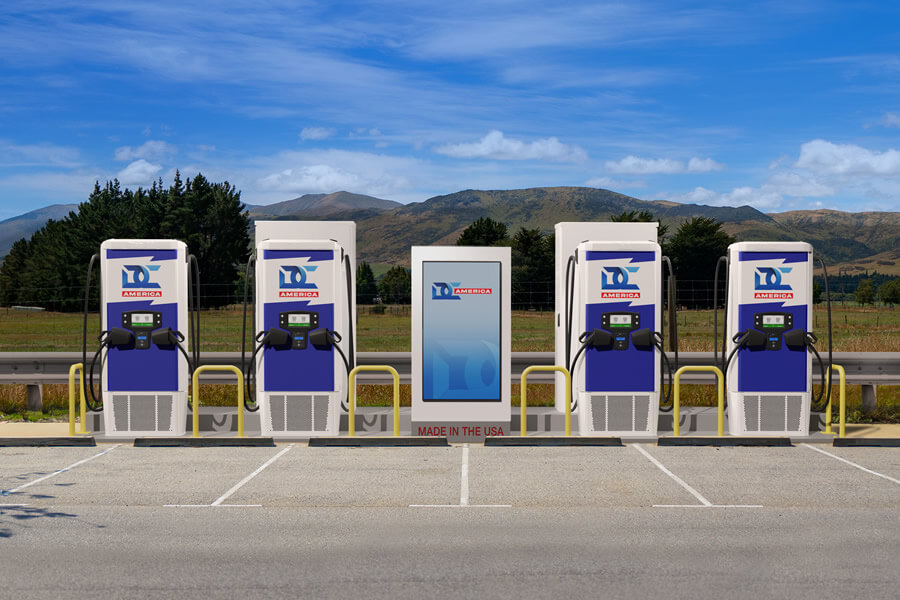by Alan Hall
Share
Share

As electric vehicles (EVs) continue to gain popularity, the demand for EV charging stations is on the rise. In order to effectively deploy an EV charging station, there are several important site considerations that need to be taken into account. These considerations include factors such as location, power supply, accessibility, and cost. Let’s take a closer look at each of these site considerations:
Location: The location of an EV charging station is crucial. It should be easily accessible and visible, ideally located in a high-traffic area such as a shopping mall, office complex, or parking garage. The location should also be close to main roads and highways, making it convenient for EV drivers to stop and recharge their vehicles.
Power Supply: EV charging stations require a significant amount of power, and it is important to ensure that there is sufficient power supply available at the selected location. A qualified electrician should be consulted to determine the power requirements for the charging station, and to ensure that the electrical infrastructure at the site can support the required power demand.
Accessibility: EV charging stations should be designed to be accessible to all users, including those with disabilities. The charging station should be located in a visible and well-lit area, with clear signage indicating its location. The charging station should also be easy to use, with clear instructions and user-friendly interfaces.
Cost: The cost of deploying an EV charging station can vary significantly depending on the location, power supply requirements, and the type of charging station being installed. It is important to carefully consider the costs associated with the project, including installation, maintenance, and ongoing electricity costs.
Regulations and Permits: Finally, it is important to be aware of any local regulations and permits that may be required for the installation of an EV charging station. These regulations may vary depending on the location of the charging station and can include zoning restrictions, building permits, and electrical permits.
Site Disruption: Placing an EV Charging station is a decision that requires a look into the future both short-term and long-term. How much site disruption will be required with digging, trenching and extending utilities to where you will need chargers? Have you considered a modular single-point charging platform that will reduce the disruption to your existing site, and future-proof your site as EV adoption increases?
EV Charging Stations Tax Advantages:
One of the most significant tax advantages of EV charging stations is the ability to take advantage of the Alternative Fuel Infrastructure Tax Credit. This credit allows businesses to claim a tax credit of up to 30% of the cost of purchasing and installing EV charging stations. For example, if a business spends $10,000 on an EV charging station, they could receive a tax credit of up to $3,000.
Additionally, businesses that install EV charging stations may also be able to take advantage of accelerated depreciation. Normally, businesses must depreciate the cost of equipment over several years. However, with EV charging stations, businesses may be able to accelerate this depreciation, allowing them to deduct a larger portion of the cost of the charging station in the first year of use.
Finally, installing EV charging stations can also have a positive impact on a business’s bottom line. By providing a valuable service to customers, businesses may be able to attract more customers and increase revenue. Additionally, by encouraging employees to use EVs, businesses can also reduce their own transportation costs.
Overall, the tax advantages of installing EV charging stations make it a smart investment for businesses looking to support sustainability while also benefiting financially.
In conclusion, deploying an EV charging station requires careful consideration of several site considerations. Location, power supply, accessibility, cost, regulations, and permits all need to be taken into account to ensure a successful project. With the increasing popularity of electric vehicles, the deployment of EV charging stations is becoming more and more important, and it is crucial to ensure that these stations are installed in a way that meets the needs of EV drivers while also being cost-effective and sustainable.
DC Chargers Explained As electric vehicles (EVs) become more popular, the need for charging infrastructure is increasing. DC chargers provide a way for EV drivers to quickly charge their vehicles, reducing the need for long charging sessions. DC chargers or DC Fast Chargers use direct current (DC) power to quickly charge EV batteries. Compared to […]


